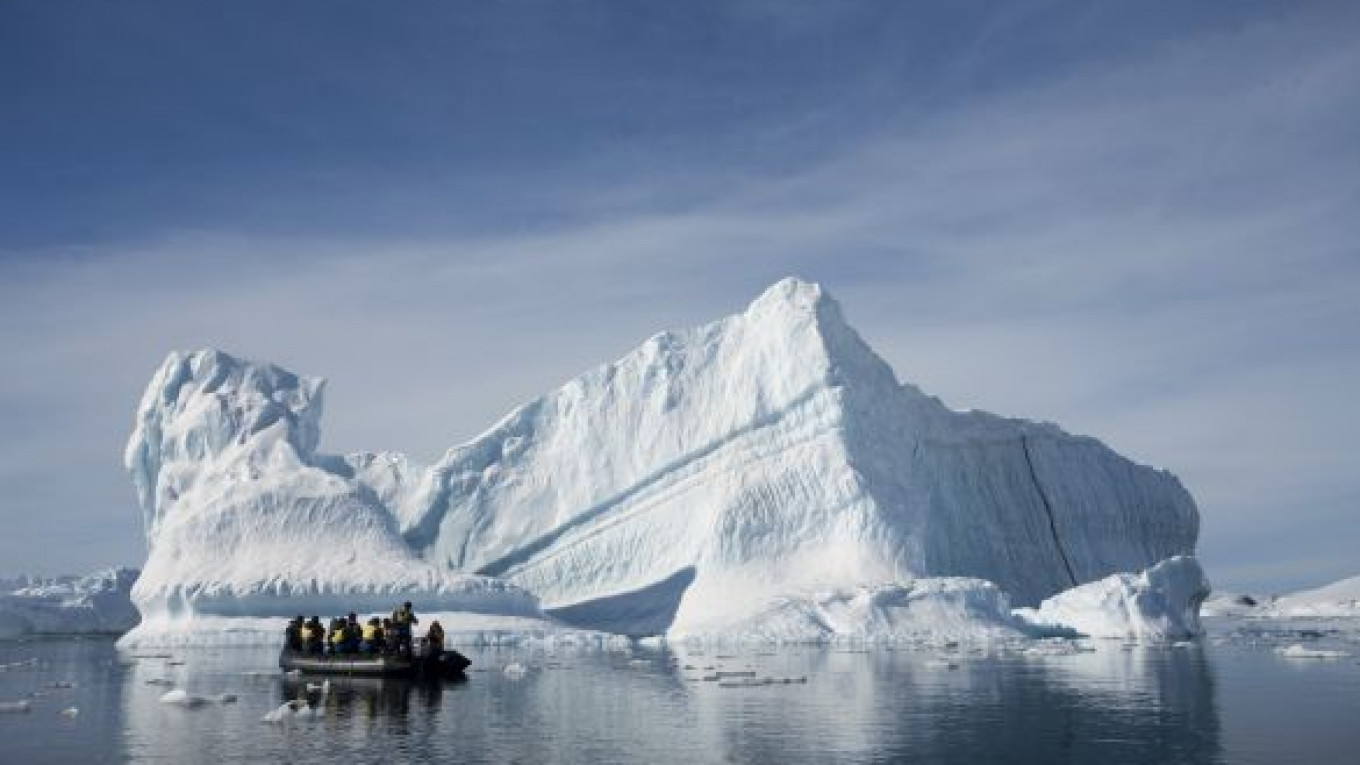Russia and Ukraine have scuttled plans to create the world's largest ocean sanctuary in Antarctica, which has pristine waters rich in energy and species such as whales, penguins and vast stocks of fish, an environmentalist group said.
The Commission for the Conservation of Antarctic Marine Living Resources met in Hobart, Australia at the beginning of this month and considered proposals for two "marine protected areas" aimed at conserving the ocean wilderness from fishing, drilling for oil and other industrial interests.
"It seems pretty clear that a small group of countries led by Russia wanted to wreck the agreement," said Steve Campbell, director of the Antarctic Ocean Alliance which campaigns for protecting the Antarctic seas.
For the sanctuary proposals to pass, they need backing from all 200 delegates from 25 member countries, many of which have conflicting interests.
Russia and Ukraine also actively blocked the two proposals in July, with China withdrawing support for one.
"This is a dark day not just for the Antarctic, but for the world's oceans," said Andrea Kavanagh, director of the independent Pew Charitable Trusts' Southern Ocean sanctuaries project.
Tony Fleming, director of the Australian Antarctic Division, hoped for a more favorable outcome the next time the proposals are discussed next year.
"If we work with members throughout the year, I believe we can bring a proposal back to next year's meeting which will hopefully achieve consensus," he said. He did not elaborate.
Antarctica is home to more than 10,000 species including most of the world's penguins, whales, seabirds, colossal squid and Antarctic tooth fish.
It is considered one of the least altered marine ecosystems and provides a global reference point for assessing the consequences of climate change.
"While many other marine ecosystems in other parts of the world have been devastated by development, pollution, mining and overfishing, many of Antarctica's ocean habitats remain intact with all of their predator species still thriving," the Antarctic Ocean Alliance says on its website.
In an earlier version of this article, the headline mistakenly said that the sanctuary was in the Arctic.
A Message from The Moscow Times:
Dear readers,
We are facing unprecedented challenges. Russia's Prosecutor General's Office has designated The Moscow Times as an "undesirable" organization, criminalizing our work and putting our staff at risk of prosecution. This follows our earlier unjust labeling as a "foreign agent."
These actions are direct attempts to silence independent journalism in Russia. The authorities claim our work "discredits the decisions of the Russian leadership." We see things differently: we strive to provide accurate, unbiased reporting on Russia.
We, the journalists of The Moscow Times, refuse to be silenced. But to continue our work, we need your help.
Your support, no matter how small, makes a world of difference. If you can, please support us monthly starting from just $2. It's quick to set up, and every contribution makes a significant impact.
By supporting The Moscow Times, you're defending open, independent journalism in the face of repression. Thank you for standing with us.
Remind me later.






